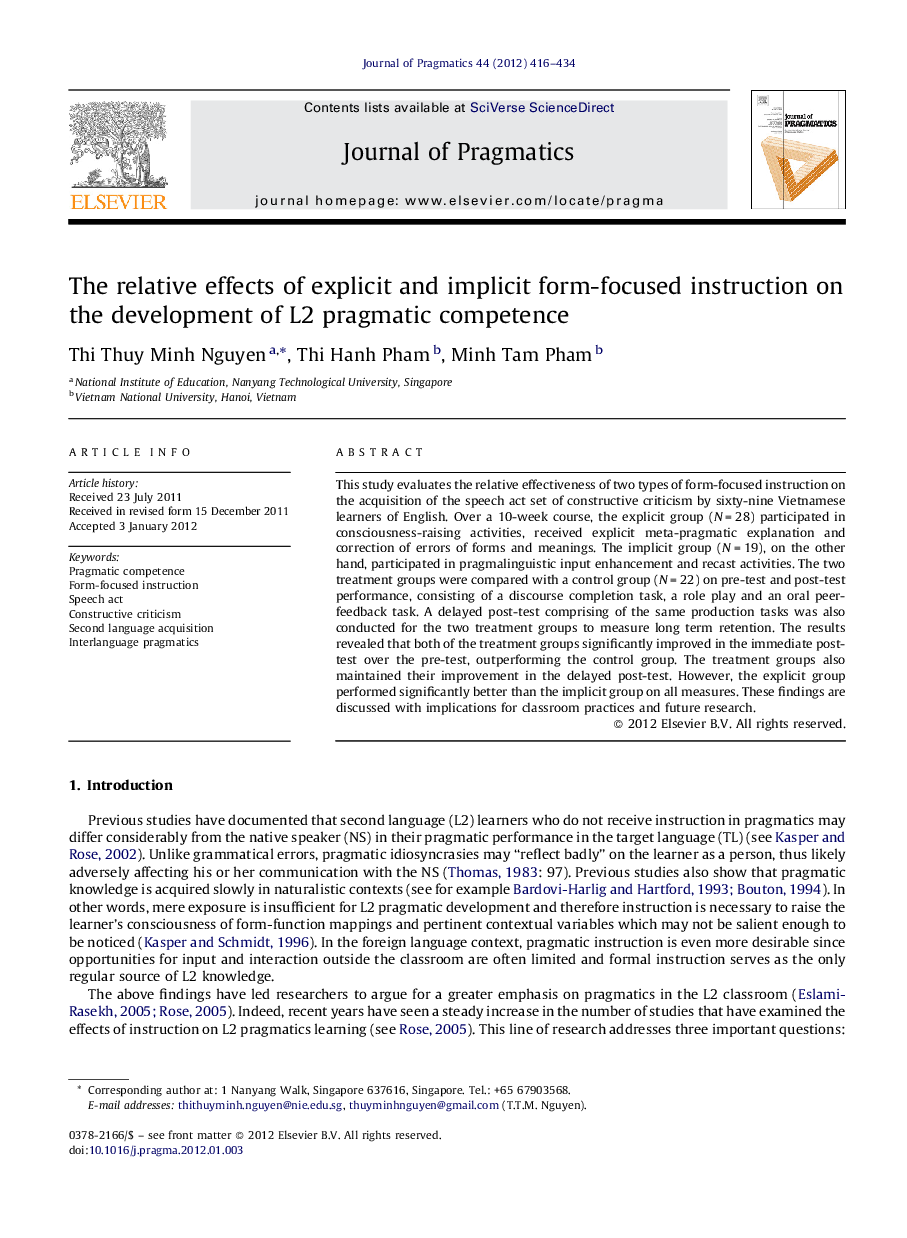| Article ID | Journal | Published Year | Pages | File Type |
|---|---|---|---|---|
| 933048 | Journal of Pragmatics | 2012 | 19 Pages |
This study evaluates the relative effectiveness of two types of form-focused instruction on the acquisition of the speech act set of constructive criticism by sixty-nine Vietnamese learners of English. Over a 10-week course, the explicit group (N = 28) participated in consciousness-raising activities, received explicit meta-pragmatic explanation and correction of errors of forms and meanings. The implicit group (N = 19), on the other hand, participated in pragmalinguistic input enhancement and recast activities. The two treatment groups were compared with a control group (N = 22) on pre-test and post-test performance, consisting of a discourse completion task, a role play and an oral peer-feedback task. A delayed post-test comprising of the same production tasks was also conducted for the two treatment groups to measure long term retention. The results revealed that both of the treatment groups significantly improved in the immediate post-test over the pre-test, outperforming the control group. The treatment groups also maintained their improvement in the delayed post-test. However, the explicit group performed significantly better than the implicit group on all measures. These findings are discussed with implications for classroom practices and future research.
► Two types of form-focused instruction were compared. ► Explicit instruction comprised of meta-pragmatic instruction and explicit corrective feedback. ► Implicit instruction comprised of input enhancement and recast. ► Both treatment groups significantly outperformed a control group. ► Explicit instruction produces a larger magnitude of effect than implicit instruction.
